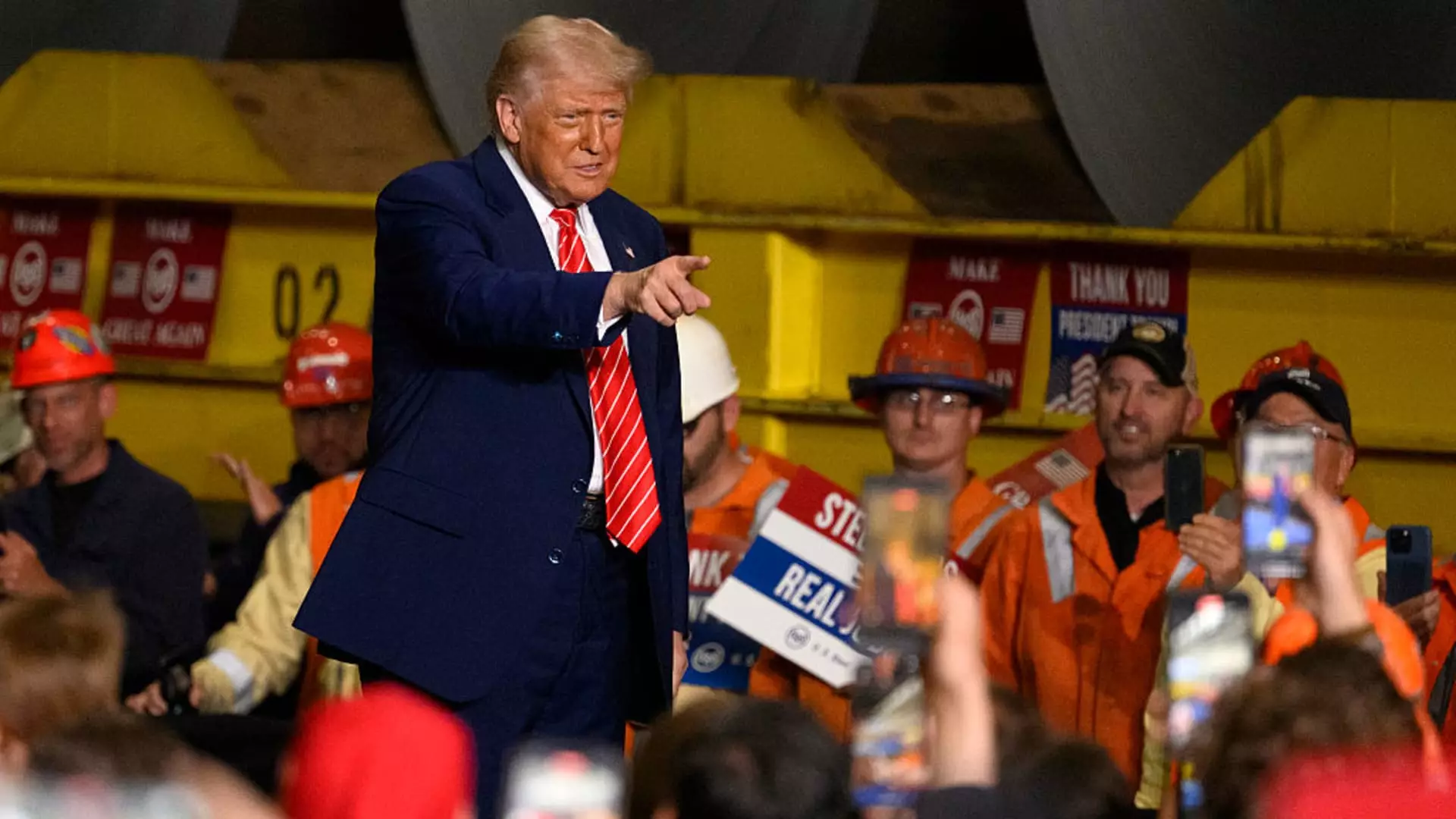The recent decision by President Donald Trump to double tariffs on steel imports from 25% to an astonishing 50% is not merely a fiscal maneuver; it’s a rattling call that reverberates across the economic landscape. It is an action that reflects both an impulsive dismissal of cooperative trade relations and a troubling stance towards robust global partnerships. The European Union’s immediate condemnation underscores that this move is not just a matter of economics; it strikes at the very heart of international diplomacy and collaboration.
The EU spokesperson aptly labeled the increase as something that “undermines” the possibility of achieving a negotiated solution to the ongoing trade war. By pivoting towards such aggressive fiscal policies, the Trump administration exacerbates tensions, perpetuating a cycle of retaliation that benefits no one. American consumers and businesses alike are poised to face increased costs, a burden that neither side of the Atlantic can comfortably bear. This myopic focus on tariffs manifests a profound misunderstanding of the interconnected global economy—one where isolationism can lead to self-inflicted wounds far more damaging than any external competition.
Workers at Risk: A Troubling Future for the Steel Industry
The alarms have been sounded within the United Steelworkers union, which has characterized Trump’s latest tariff as a direct hit on Canadian industries and workers. Marty Warren, the National Director for Canada, affirms the gravity of the situation by emphasizing that “thousands of Canadian jobs are on the line.” This commentary paints a dire picture—communities that thrive on steel and aluminum could find their livelihoods hanging by a thread, utterly dependent on political whims rather than solid economic strategies.
It’s easy to trumpet the notion that protective measures like tariffs create jobs, especially in a sector that has long been the bedrock of American manufacturing. But standing firmly against Canadian imports may actually dismantle the very infrastructure supporting employment in both nations. A myopic approach to trade that focuses solely on domestic industries without considering the ramifications for allies risks a retaliatory spiral that could further destabilize both economies.
Negotiations Interrupted: A Strategy Gone Awry
With Trump’s announcement taking center stage at a rally, the context was laden with ambiguity. Highlighting an “agreement” between Nippon Steel and U.S. Steel, which was not yet finalized, shows a troubling approach to leveraging trade negotiations. While claiming there will be no layoffs related to this deal, the reality remains that increased tariffs can be a double-edged sword. They induce short-term gains for certain groups while risking the jobs of many by raising costs and inviting a cascade of countermeasures from impacted nations, particularly Canada and other U.S. allies.
Moreover, the legal entanglements surrounding these tariffs add yet another layer of complexity. The recent intervention by the U.S. Court of International Trade, which halted much of Trump’s country-specific tariffs, reveals that this policy is fraught with uncertainty. Legal challenges not only undermine confidence in the administration’s approach but also petrify businesses that need stability to plan for the future.
The EU’s Response: A Waiting Game of Countermeasures
The EU’s preparedness to impose countermeasures signals a dramatic shift in the global trade dynamic. The ability to retaliate against U.S. tariffs is not merely a show of strength but a necessary reaction to an unprovoked strike designed to establish dominance through volatility. With the EU poised to activate its countermeasures if negotiations fall flat, the stage is set for a protracted battle that may further erode trust between longtime allies.
The notion that economic empowerment can be achieved through aggressive isolationism is dangerous and misguided. The EU’s statement that they had previously paused their counter-measures to allow time for negotiations indicates that they are not looking for a fight, but they are also prepared to defend their interests when provoked. It’s a high-stakes game of chicken that neither side can afford to lose, but one that fundamentally differs in its implications for working-class individuals and daily consumers.
The essence of trade is collaboration and compromise, not conflict. And yet, current policies and reactions illustrate that the path we find ourselves on is not only unsustainable—it’s perilous. Rising nationalistic sentiments threaten to unleash a tit-for-tat scenario where no party emerges unscathed, and workers, consumers, and entire economies remain at the mercy of forceful policies rested on flimsy assertions of merit.


Leave a Reply